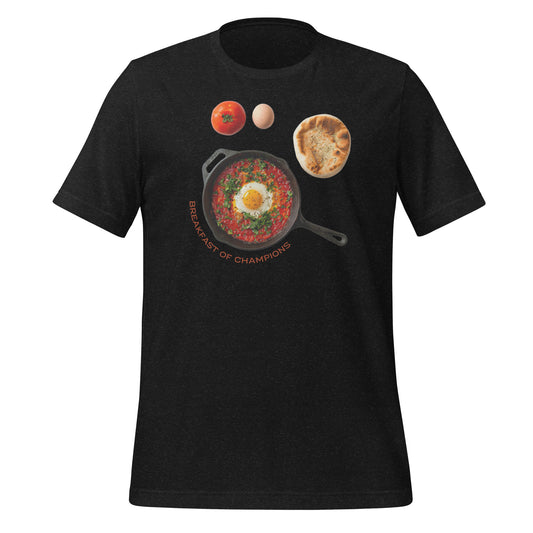
What Is Zionism, Actually?
Share
Spoiler alert: It’s not a slur.
It’s one of the most misunderstood and maligned terms in modern Jewish life—and also one of the most essential.
In an era where “Zionist” is hurled as an insult on college campuses and comment sections, many Jews find themselves struggling to respond. What does it actually mean to be a Zionist? Is Zionism still relevant? Is it political? Religious? Colonial? Dangerous?
Let’s uncover the truth and origins of this word.
📖 The Basic Definition (That Wikipedia Forgot)
Zionism is the belief that the Jewish people have the right to self-determination in their ancestral homeland, the Land of Israel.
That’s it. That’s the tweet. (Do we still say that?)
Some say the term was coined in 1890 by Austrian writer Nathan Birnbaum and later popularized by Theodor Herzl. Zionism emerged in response to centuries of antisemitism, pogroms, and exclusion. Others refer to the liturgy and texts of the Jewish people and pull the roots from there.

Either way, modern-day Zionism as a political movement took root in the 19th century because the need was undeniable.
Europe’s Jews weren’t just marginalized. They were massacred. From the Spanish Inquisition to blood libels and ghettoization, to the Russian pogroms of the late 1800s, antisemitism wasn’t just a social illness—it was a survival threat.
Even the “liberal” societies of Europe never fully accepted Jews. They were always the Other.
The core idea? Jews are not just a religion, but a people with a shared history, language, culture, and homeland.
🕍 Why Zionism Is Tied to Judaism
Zionism isn’t a foreign concept imported into Judaism. It’s baked in.
- The word Zion (ציון) appears in the Hebrew Bible over 150 times.
- Jewish prayers for 2,000+ years have spoken of returning to Jerusalem.
- The Passover Seder ends with: “Next year in Jerusalem.”
- Every wedding ends with a broken glass and a vow to remember Zion.
Zionism simply gave modern political and practical expression to that ancient longing. It’s not about conquering land. It’s about coming home.
🌍 Is Zionism Colonialism?
Colonialism = foreign empire sending its people to exploit other land.
Zionism = indigenous people returning home.
Jews are not outsiders in Israel. The connection goes back 3,000 years. Archaeology, liturgy, DNA, and diaspora memory all point to a deep, unbroken tie to the land. The forced exile in 70 CE didn’t sever that. It made the longing stronger.
Colonial empires like Britain, France, and Spain sent settlers abroad to extract resources, enrich the crown, and spread their dominance.
So let’s ask a serious question: What exactly were the Jews extracting from Palestine in the early 20th century?
- Oil? Nope.
- Wealth? The land was mostly arid and underdeveloped.
- Political power? Hardly. They were under Ottoman, then British rule.
- Strategic control? The Jewish Yishuv was fighting for survival, not dominance.
There was no motherland sending them. They were the motherland, returning.
Jews weren’t part of a colonial machine. In fact, Jews came to Palestine fleeing colonial and imperial regimes. They didn’t come to exploit—they came because there was nowhere else to go.
✡ Reclaiming a Misunderstood Identity
Many young Jews today feel caught between defending themselves and distancing themselves. The word Zionist has been twisted beyond recognition by online trolls, biased media, and antisemitic conspiracy theories.
We say: it’s time to reclaim it.
Zionism isn’t about hate. It’s about hope. It’s about pride. It’s about a people who survived exile, genocide, and statelessness—and said, “We’re still here.”
That’s why we launched our Zionism T-Shirt Collection. Because wearing your identity shouldn’t feel like a risk. It should feel like power.
🧠 TL;DR – Zionism Is…
- A movement for Jewish self-determination.
- Deeply rooted in Judaism and Jewish identity.
- The antithesis of colonialism.
- Not synonymous with a particular Israeli government or policy.
- A response to centuries of exile and persecution.
- An incredible historic revival and achievement to be proud of.

📚 Further Reading
Want to dive deeper into Zionism’s roots, meaning, and history? These sources are all well-regarded, verifiable, and worth your time:
- Theodor Herzl, The Jewish State (1896)
- Rabbi Jonathan Sacks, Future Tense (2010)
- Deborah Lipstadt, Antisemitism: Here and Now (2019)
- Walter Laqueur, A History of Zionism (1972)
- David Ben-Gurion, Israel: A Personal History (1971)
- Yad Vashem, Encyclopedia of Zionism
Save, screenshot, or share with the next person who asks, “But isn’t Zionism just colonialism?”
🧢 Show It Off
We believe Zionism isn’t just an idea. It’s a statement. That’s why our Zionist Merch is designed to be unapologetic, defiant, and joyful.
Because supporting Israel isn’t controversial—it’s core to who we are.












